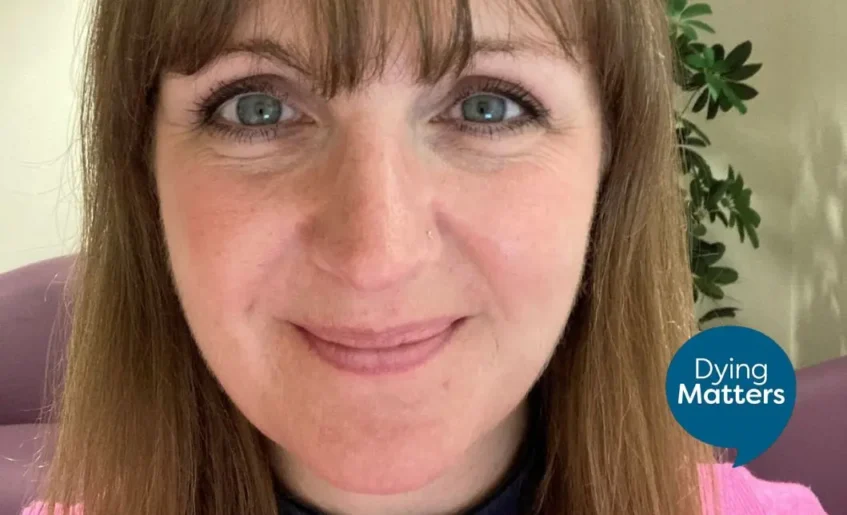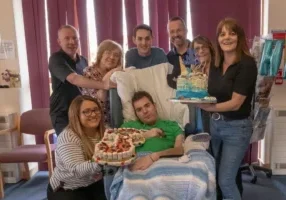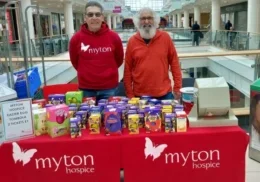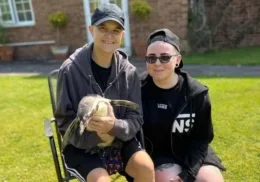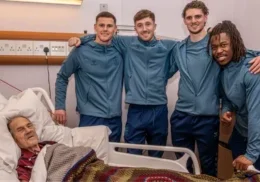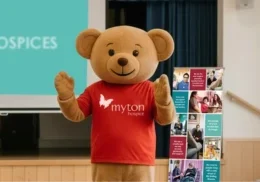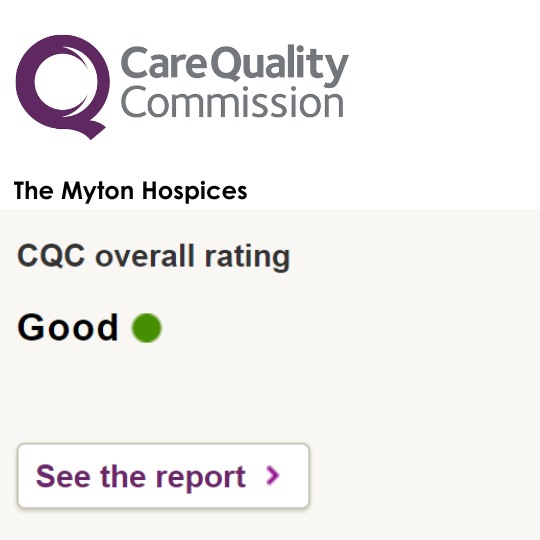Dying Matters Awareness Week encourages people across the UK to talk about death and dying in a way that feels natural to them. By opening up these conversations, we can help break down the stigma and taboo surrounding death.
This year’s theme is ‘The Culture of Dying Matters.’ While every culture and faith have their own traditions and beliefs surrounding death, dying, and grief, these experiences are universal, bringing shared emotions and feelings that connect us all.
To start the week, our Spiritual Care Lead, Ellie Clack, is sharing her thoughts and experiences of how our culture and beliefs shape our attitudes towards death and dying…
At The Myton Hospices, spiritual care plays a vital role in palliative care. A life-limiting diagnosis often leads people to reflect deeply on their lives and consider their own death in new ways. Whilst many people assume that spiritual care is purely religious, though for some this may play a part, spiritual care is about tending to what makes us who we are, what gives our lives meaning, our hopes and fears, and everything in between.
As a Spiritual Care team, we support people in different ways. This may be through listening without judgement as someone works through their sense of meaning or where that has been challenged. It may be through enabling someone to access the resources that help them and give them a sense of purpose, stability or peace. For others, this is about accessing the specific parts of their religious and belief system, which could be prayers, scriptures, meeting a specific faith leader, using our Sanctuary spaces and more.
Sometimes spiritual care does not have a specific or formal component but might be about memory-making, funeral planning or legacy work. We may take time to be outside in nature, to practice meditation and mindfulness, or to sit in stillness and deep respect with someone as they die.
We are sometimes engaged in final wishes, such as offering a confession or to be reconciled with a loved one, to get married or have some kind of ritual of faith, to ensure that someone’s body is handled by the right people in the right way at the right time for them.
Many religious traditions offer guidance on end of life practices, and part of our role is to help facilitate these, whether by supporting people ourselves, working with a patient’s own faith leader, or reaching out to someone in the wider community.
However, our starting point is always the person in front of us, asking them what is most meaningful to them, what makes sense in their life, and what will bring them the greatest comfort as they approach death. No two people are the same, and we never make assumptions about what someone may or may not want.
Throughout this week, we will be asking, ‘What matters most at the end of life?’ The answers to this question are as diverse as the people we care for.
Some find peace in the presence of loved ones, while others seek solitude. Some take comfort in music, familiar rituals, or cherished memories, while others look for moments of reflection and closure. In our hospices and in the care we provide at home, we see every day how personal and unique the journey of dying can be.
This week, I would like to encourage you to chat to your loved ones, be in touch with us as a spiritual care team via our social media platforms, and enjoy these little windows into other people’s perspectives that open up the richness and breadth of our community’s spirituality and culture, and most of all, our humanity.


